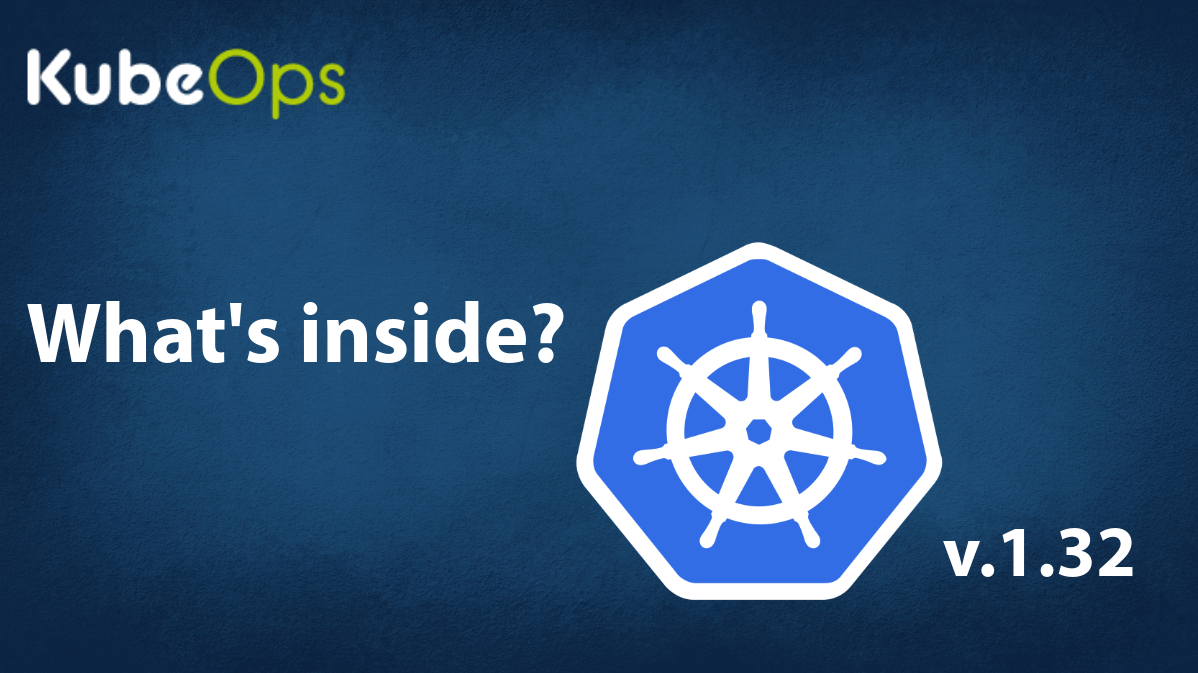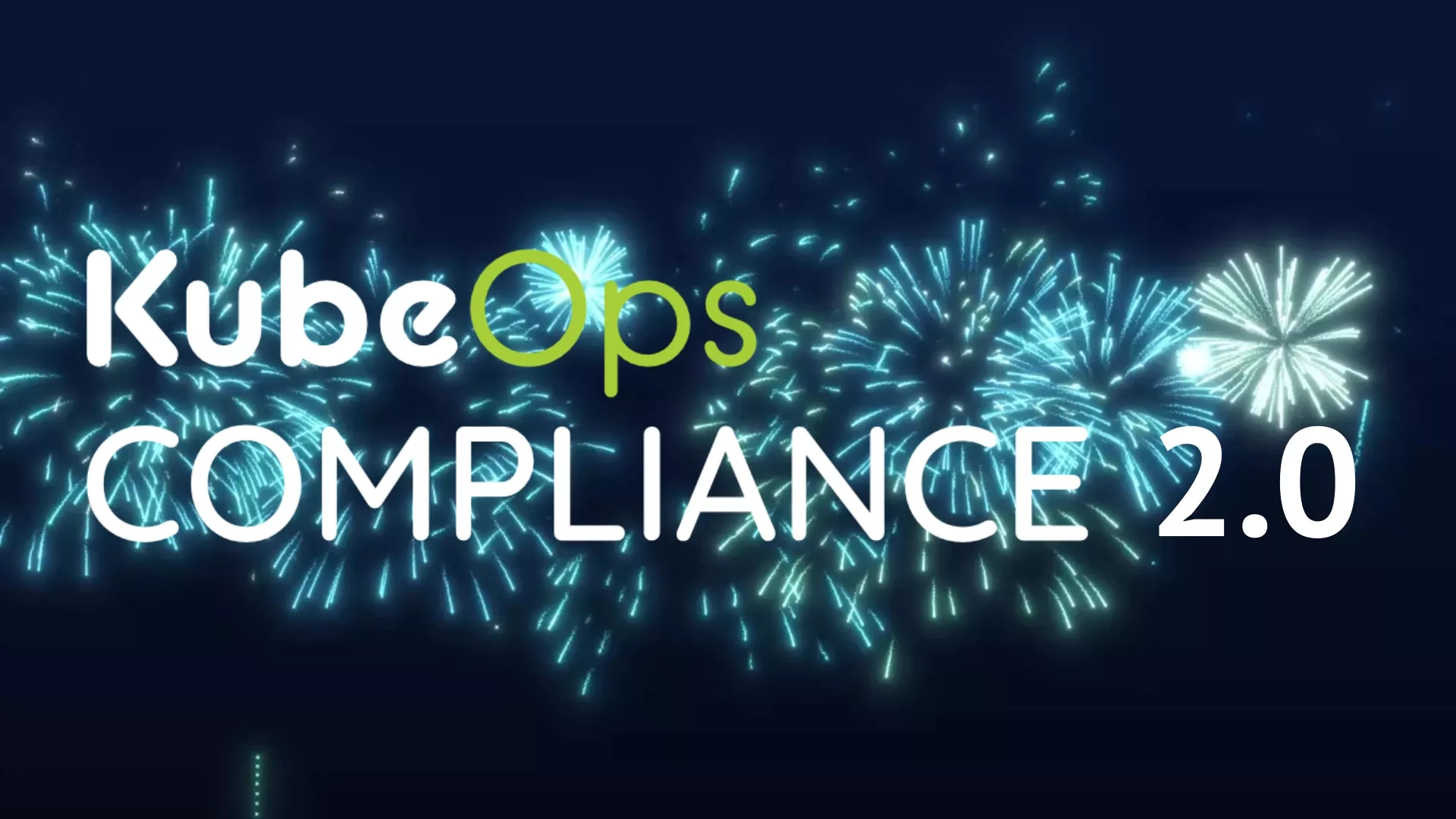Blogs
What's inside Kubernetes v.1.32

Kubernetes 1.32 is here! This release introduces numerous enhancements that further strengthen the platform – from improved scalability to security updates and network performance upgrades. Whether you are a developer or an administrator, the changes in Kubernetes 1.32 will help you make your clusters more efficient, secure, and future-proof. Let’s dive into the highlights.
Focus on Scalability: More Power for Large Clusters
Kubernetes 1.32 sets new benchmarks for scalability and improves the management of large clusters significantly:
Optimized API Server Performance
The API server now handles high traffic more efficiently, with improvements in request prioritization and throttling mechanisms.
Improved Scheduler Performance
Updates to the Kubernetes scheduler reduce latency in high-demand environments, enabling smoother workload distribution.
Node Scalability Testing
While Kubernetes can scale to thousands of nodes, specific benchmarks depend on individual deployments. Official guidance suggests testing configurations to suit workload needs.
Security Updates: Better Protection for Your Workloads
As always, Kubernetes places a strong emphasis on security, and version 1.32 delivers significant advancements:
Pod Security Standards (PSS)
With PodSecurityPolicy deprecated, Kubernetes now relies on Pod Security Standards (PSS), offering namespace-level security policies to simplify compliance with best practices.
Secrets Management
Kubernetes continues to enhance secrets management by improving integration with external Key Management Systems (KMS). Immutable Secrets and ConfigMaps are now GA, providing better performance and security.
Certificate Management
Enhanced certificate rotation features reduce the operational overhead of managing TLS certificates, ensuring secure communications within clusters.
Network Upgrades: Stability and Flexibility
Network performance is a key focus in Kubernetes 1.32:
EndpointSlice API
The EndpointSlice API is now fully stable, offering better scalability for Services with a large number of endpoints.
IPv6 Dual-Stack
Support for dual-stack networking has been refined, simplifying operations for clusters requiring both IPv4 and IPv6.
Service Topology Improvements
Updates to Service Topology provide more precise traffic routing, optimizing resource usage in multi-zone clusters.
Efficient Storage Management: Persistent Volume Enhancements
Stateful workloads also benefit from Kubernetes 1.32:
Dynamic Volume Resizing
Enhancements to Persistent Volume (PV) resizing streamline the process of scaling storage resources without disrupting workloads (subject to storage backend support).
CSI Improvements
Updates to Container Storage Interface (CSI) drivers include better support for volume snapshots and cloning, improving operational efficiency.
Deprecations and Cleanups: Making Space for Innovation
As with every update, Kubernetes 1.32 clears the way for future improvements:
PodSecurityPolicy (PSP)
PSP is now fully deprecated, replaced by Pod Security Standards (PSS).
In-Tree Storage Plugins
Kubernetes encourages migration to CSI drivers, deprecating in-tree plugins for better maintainability and compatibility.
Users should review deprecated features and ensure their workloads are compatible with newer alternatives.
Developer Experience Improvements
Developer-focused updates in Kubernetes 1.32 streamline workflows and debugging:
kubectl Enhancements
The kubectl CLI tool includes better support for YAML validation and output formatting, making it easier to manage resources.
Ephemeral Containers GA
Ephemeral containers are now generally available, enabling live debugging of running Pods without disrupting existing containers.
Enhanced Observability
Structured logging improvements make it easier to integrate Kubernetes logs with observability platforms like ELK or Prometheus.
For StatefulSets, Startup Probes ensure readiness checks only begin after Pods are fully initialized – a big advantage for complex applications.
Upgrade Recommendations
Upgrading to Kubernetes 1.32 requires careful planning to minimize disruptions:
Backup and Test
Always test upgrades in a staging environment and back up critical data before proceeding.
Review API Changes
Check for deprecated APIs in your workloads and migrate to stable alternatives.
Update Tools
Ensure that tools such as Helm, kubectl, and monitoring systems are compatible with Kubernetes 1.32.
Conclusion: Why Upgrading to Kubernetes 1.32 is Worth It
Kubernetes 1.32 builds on the platform’s strengths and introduces innovations that make your clusters more powerful, secure, and user-friendly. Whether you’re managing large clusters, protecting sensitive data, or optimizing workloads, this release provides numerous benefits to elevate your Kubernetes environment to the next level.

